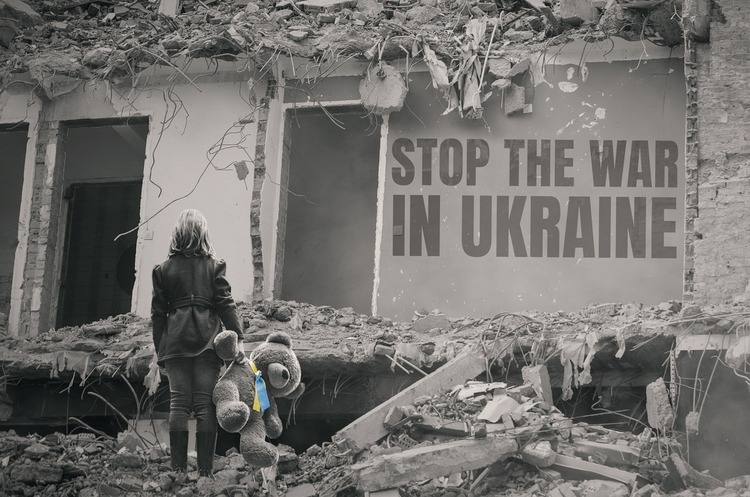Compensation for losses: how Ukrainian business can recover from the russian federation everything lost
How does the option of receiving funds based on decisions of Ukrainian courts on recovery of damages from russia without their implementation work

Ukraine suffers daily losses due to the full-scale war unleashed on its territory by russia. As calculated by the Institute of Economic Research in Kiel, the losses of Ukraine will amount to approximately $120 billion by 2026. In addition, the losses of machines, equipment, and manufacturing enterprises may reach almost $1 trillion. Yes, only one enterprise as a result of the war claims losses amounting to at least 4 billion hryvnias. Considering all the volumes of destruction, the russian federation must compensate for these and other losses, and such mechanisms are already being considered. A separate issue is compensation for the losses that the russian federation has caused to Ukrainian businesses. What opportunities already exist in international law today to force the russian federation to pay "according to the accounts" of businesses, lawyer Anton Yanchuk told Mind.
The military aggression of the russian federation (rf) has brought grief and destruction to Ukraine.
According to the Institute of the Kyiv School of Economics, as of June 2023, the total amount of direct damage caused to Ukraine's infrastructure by the Russian armed aggression exceeded $150 billion, of which the loss of business assets is estimated at $11.4 billion. Obviously, in April 2024, this amount is much higher.
Recovery for such losses is, without exaggeration, a matter of national security in Ukraine. However, at present, businesses can seek such compensation by hunting for russian assets abroad, or by relying on the Hague Register of Losses (which is currently closed to business claims), or by waiting for the emergence of a third instrument (which does not yet exist in the world).
At the same time, of all the tools for legal objectification of claims for damages against the RF, the most accessible for businesses is a Ukrainian court decision to recover such damages. Obtaining such a decision makes a lot of sense for business, while its enforcement is a big challenge.
However, challenges create opportunities. Ukraine now has the opportunity to create a mechanism for victims to receive funds based on Ukrainian court decisions to recover damages from the rf without their enforcement.
Rights of claims for damages against the rf as items of trade
As a general rule, property claims are tradable, i.e., they can be traded as a goods. Similarly, the rights of claim against the RF for recovery for damage to property are also tradable. At present, the Civil Code of Ukraine (the "Code") does not allow for the replacement of a creditor only in obligations inseparably linked to the creditor's person.
Therefore, the rights of claim against the rf for recovery for damage to property caused by it, confirmed by a Ukrainian court decision, may be sold for a fee (Article 656 of the Code), or transferred to management (Article 1030 of the Code), or disposed in another or combined way.
This raises a key question: who might be interested in acquiring claims against the RF for recovery for damage caused by it in Ukraine and why?
"I owe you, and you owe me, and therefore no one owes anyone"
The rights of claim against the rf may be of interest primarily to the debtors of the rf. Especially in case they can acquire these rights of claim at an attractive discount, then set them off against their obligations to pay for goods to the rf and, therefore, obtain an economic benefit – retrench.
Termination of an obligation by offsetting homogeneous counterclaims is provided for by the Code, which also contains an important provision – offsetting of counterclaims may be carried out at the request of one of the parties (Article 601 of the Code).
Therefore, the obligations of indicative country A to pay for indicative coal in favour of the RF and the obligation of the RF to recover country A for damage to property caused by armed aggression in Ukraine are counterclaims (which is obvious) and homogeneous (monetary), and therefore may be terminated by set-off. For such offsetting, indicative country A does not need to seek the consent of the RF or sign additional agreements with it. The indicative country A unilaterally declares such a set-off and it is considered to have taken place.
The institute of set-off of homogeneous counterclaims exists in other developed legal systems in roughly the same logic. Accordingly, by default, such set-off may be applied regardless of the law governing the relations between the parties to the Russian energy supply contract.
Potential buyers of rights of claim under Ukrainian judgements against the rf
According to the findings of the Center for Research on Energy and Clean Air (CREA), based on the results of the analysis of Russian fossil fuel exports in February 2024, hereinafter referred to as the CREA Findings, from 5 December 2022 to February 2024, China purchased 38% of all russian coal exports. It is followed by India (20%) worth 4 billion Euros and South Korea (13%) worth about 2 billion Euros.
Moreover, according to the CREA Findings, the European Union was the largest buyer of liquefied natural gas (LNG) in the period under review, purchasing 49% of russia's LNG exports worth over €6 billion. It was followed by China (21%) and Japan (19%) with over €3bn worth of LNG exports. Euros. No sanctions have been imposed on russian LNG shipments to the EU. The same data shows that LNG of russian origin was purchased in the EU by Spain, Belgium and France, and outside the EU by South Korea. It also shows that the EU was the largest buyer of russian pipeline gas, purchasing 41%, followed by Turkey (29%) and China (26%). There are no sanctions on russian pipeline gas imports to the EU.
In addition, according to the CREA Findings, in February 2024 alone, fossil fuel imports from russia to the EU consisted of pipeline gas (39%, worth EUR 0.7 billion), LNG (31%, worth EUR 0.55 billion), crude oil (30%, worth EUR 0.53 billion) and oil products (EUR 0.15 billion), i.e. a total of EUR 1.93 billion.
In other words, these are serious sums of money, for which it is worth considering the possibility of creating a mechanism to direct a part of them to Ukrainian businesses affected by the military aggression of the russian federation and to the state of Ukraine – for the losses of state-owned enterprises.
Many of the countries mentioned above support Ukraine in countering Russia's military aggression politically and financially, primarily France, Belgium, Spain, the European Union as a whole, as well as South Korea and Japan.
Accordingly, these countries may become potential buyers of rights of claims for damages under Ukrainian court decisions against russia in order to offset such claims against their obligations to russia for energy supplies.
General description of the mechanism and its economic viability
The proposed idea can be implemented, in particular, in the following way.
First, a Ukrainian recoverer under a court judgment for damages from the rf alienates the rights of claim under such a judgment in favour of the state of Ukraine. This sale should take place at a discount, and most likely at a significant one. At the same time, this may well make economic sense for the indicative affected Ukrainian company, as it is guaranteed to receive compensation for part of the damages in cash within a clear time horizon, and will also save on the costs of recognition and enforcement of the judgment abroad, on tracing for the assets of rf, etc.
Next, the state of Ukraine will alienate the said rights of claim against the rf for recovery of damages in favour of a foreign state which has obligations to pay for goods to the rf. This sale will also take place at a discount from the face value of the claims, as this is the only way to rise interest in purchasing such claims. Moreover, the offsetting of such claims creates objective risks of a foreign state's expenditures on an international dispute with the RF, which will obviously object to such offsetting.
Ultimately, the foreign state offsets the acquired rights of claim under a Ukrainian court judgment vs. the rf against its obligations to the rf to pay for the goods purchased from it.
The advantage of this tool is that the creditor first sets off the claim and declares the termination of the debt to the RF, and only then rf objects to such termination and possibly challenges it.
Sceptics may point out that energy supply contracts with russia may contain clauses prohibiting the termination of payment obligations by offsetting counterclaims, which is important to argue. At the same time, it is unlikely that all such contracts contain such a clause.
Obviously, the implementation of the proposed mechanism is possible only if a number of Ukrainian government agencies work systematically, consent of partner countries in counteraction to rf’s military aggression, and, most importantly, if they and Ukrainian businesses benefit economically.
And at first glance, this economic benefit can be found.
At the same time, the implementation of this mechanism can potentially create a vicious circle of negative economic consequences for the rf – the more it damages property in Ukraine, the more payments it will lose for the supply of its energy resources, which is a key source of funding for its army.
Therefore, the implementation of this mechanism can weaken the economic potential of the rf and create economic benefits for its other participants, and therefore it seems to be worthy of the state's attention.
The OpenMind authors, as a rule, are invited experts and contributors who prepare the material on request of our editors. Yet, their point of view may not coincide with that of the Mind editorial team.
However, the team is responsible for the accuracy and relevance of the opinion expressed, specifically, for fact-checking the statements and initial verification of the author.
Mind also thoroughly selects the topics and columns that can be published in the OpenMind section and processes them in line with the editorial standards.



